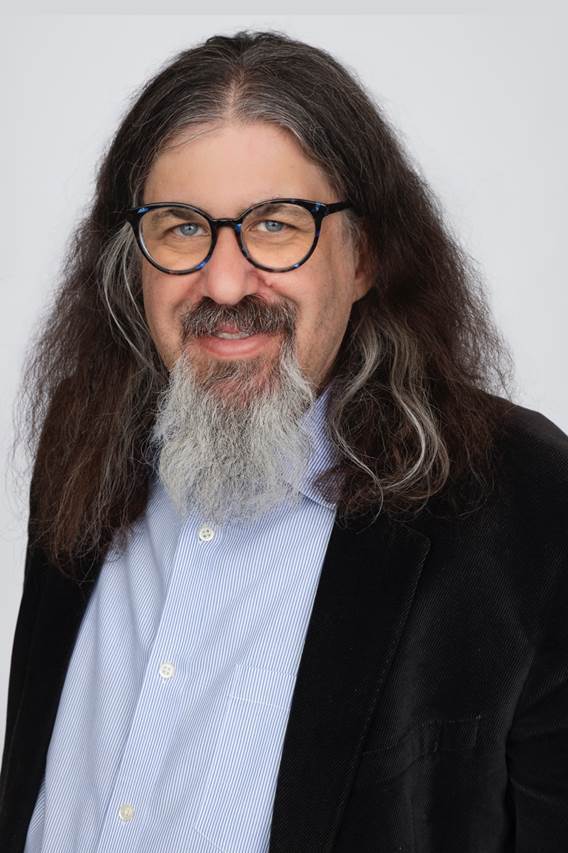
Jeremy Wallach is Professor in the Department of Popular Culture at Bowling Green State University. A cultural anthropologist specializing in popular music and globalization, he has written or co-written over forty research essays; co-edited, with the late Esther Clinton, a special issue of Asian Music (2013); and authored the monograph Modern Noise, Fluid Genres: Popular Music in Indonesia, 1997-2001 (Univ. of Wisconsin, 2008; Indonesian Trans., Komunitas Bambu, 2017). In 2011, he co-edited, with Harris M. Berger and Paul D. Greene, the collection Metal Rules the Globe: Heavy Metal Music around the World (Duke) and in 2023 the collection Defiant Sounds: Heavy Metal Music in the Global South with Nelson Varas-Díaz, Esther Clinton, and Daniel Nevárez-Araújo (Lexington). Dr. Wallach has given research presentations in Austria, Canada, Finland, France, Germany, Indonesia, Italy, Malaysia, Mexico, the Netherlands, the Philippines, Puerto Rico, and throughout the United States. A founding member and former chair of the Society for Ethnomusicology Popular Music Section, Dr. Wallach serves on the editorial board of the Journal of World Popular Music Studies and is a Series Editor of the Music/Culture Series at Wesleyan University Press. His writings have appeared in Ars Lyrica, Asian Music, Ethnomusicology, Indonesia, the Journal for Cultural Research, the Journal of Popular Music Studies, Popular Music History, Wacana Seni Journal of Arts Discourse, the Journal of World Popular Music Studies, and a number of edited collections, including The Bloomsbury Handbook of Rock Music Research (2020), The Cambridge Companion to Metal Music (2023), The Oxford Handbook of the Phenomenology of Music Cultures (2024) and Theory for Ethnomusicology (Second Edition, 2019).

Ryan Ebright completed his Ph.D. in musicology at the University of North Carolina at Chapel Hill, and holds a M.M. in musicology and vocal performance from the Peabody Conservatory of Johns Hopkins University. His research centers on opera, song, and intersections of music and drama, with an emphasis on 20th-century and contemporary opera, minimalism, and 19th-century Lieder. His current book project, Making American Opera after Einstein, examines the efforts of artists and institutions over the last forty years to redefine what American opera is and how audiences experience it.
Dr. Ebright presents regularly at regional, national, and international conferences. His writing has appeared in the New York Times and NewMusicBox, the journals American Music and Cambridge Opera Journal, and the book Rethinking Reich. Before coming to BGSU, Dr. Ebright taught at UNC-Chapel Hill and UNC Greensboro.
Recent Academic Writing
“Doctor Atomic or: How John Adams Learned to Stop Worrying and Love Sound Design.” Cambridge Opera Journal 31, no. 1 (2019): 85–117.
“‘We are not trying to make a political piece’: The Reconciliatory Aesthetic of Steve Reich and Beryl Korot’s The Cave.” In Rethinking Reich, edited by Sumanth Gopinath and Pwyll ap Siôn, 93–109. New York: Oxford University Press, 2019.
“Philip Glass.” In Oxford Bibliographies Online, edited by Bruce Gustafson. New York: Oxford University Press, 2018.
“‘My answer to what music theater can be’: Iconoclasm and Entrepreneurship in Steve Reich and Beryl Korot’s The Cave.” American Music 37, no. 1 (Spring 2017): 29–50. *2018 ASCAP Deems Taylor/Virgil Thomson Award winner*
Recent Public Writing
“Anthony Davis’s Revolutionary Opera: ‘X’.” New Yorker, 22 May 2020.
“Finally, a Stage for Female Composers from Iran.” New York Times, 18 May 2020.
“A ‘Stabat Mater’ for the 21st Century, Colored by a Composer’s Faith.” New York Times, 1 November 2019.
“Hundreds of New Concertos Bring the World to the Concert Hall.” New York Times, 1 August 2019.
“Japanese Theater Inspires a New Opera of Celestial Textures.” New York Times, 12 November 2018.
“Beethoven’s 200-Year-Old ‘Fidelio’ Enters Today’s Prisons.” New York Times, 4 May 2018.
“Celebrating Women’s Rights, ‘That Most American Of Operas’,” New York Times, 3 November 2017.
Recent/Upcoming Presentations
“New Music Theater and American New Music Ensembles,” Annual Meeting of the Society for American Music (SAM), Minneapolis. March 2020
“Incubation and Integration: The American Music Theater Festival and Anthony Davis’s X.” Music Festival Studies: Current Perspectives, Future Directions, Massachusetts Institute of Technology, Cambridge. March 2020.
“Assembling ‘Meredith Monk and Vocal Ensemble,’ 1975-86,” Minimalism Extended: The Seventh International Conference on Minimalist Music, Cardiff University, Wales. August 2019.
“Incubating American ‘Opera-Theater’: Beth Morrison Projects, Los Angeles Opera, and Missy Mazzoli’s Song from the Uproar,” SAM Annual Meeting, Kansas City. March 2018.
“Scoring the Body: Meredith Monk’s Atlas as Operatic Work,” National Meeting of the American Musicological Society (AMS), Rochester. November 2017.
Courses Taught
American Opera after Einstein
Minimalism: Theory, Culture, Praxis
20th-Century Music Survey
DMA Multidisciplinary Seminar in Post-1945 Music and Culture
Chamber Music Literature
Symphonic Literature
Exploring Music
Thanks for attending this performance. If you have enjoyed your experience, please consider donating to the College of Musical Arts in support of our students and programming. Donate online at bgsu.edu/givecma, or call Sara Zulch- Smith at 419-372-7309.
To our guests with disabilities, please indicate if you need special services, assistance or appropriate modifications to fully participate in our events by contacting Accessibility Services, access@bgsu.edu, 419-372-8495. Please notify us prior to the event.
Audience members are reminded to silence alarm watches, pagers and cellular phones before the performance. As a matter of courtesy and copyright law, no recording or unauthorized photographing is allowed. BGSU is a nonsmoking campus.
Updated: 03/15/2024 08:25AM
